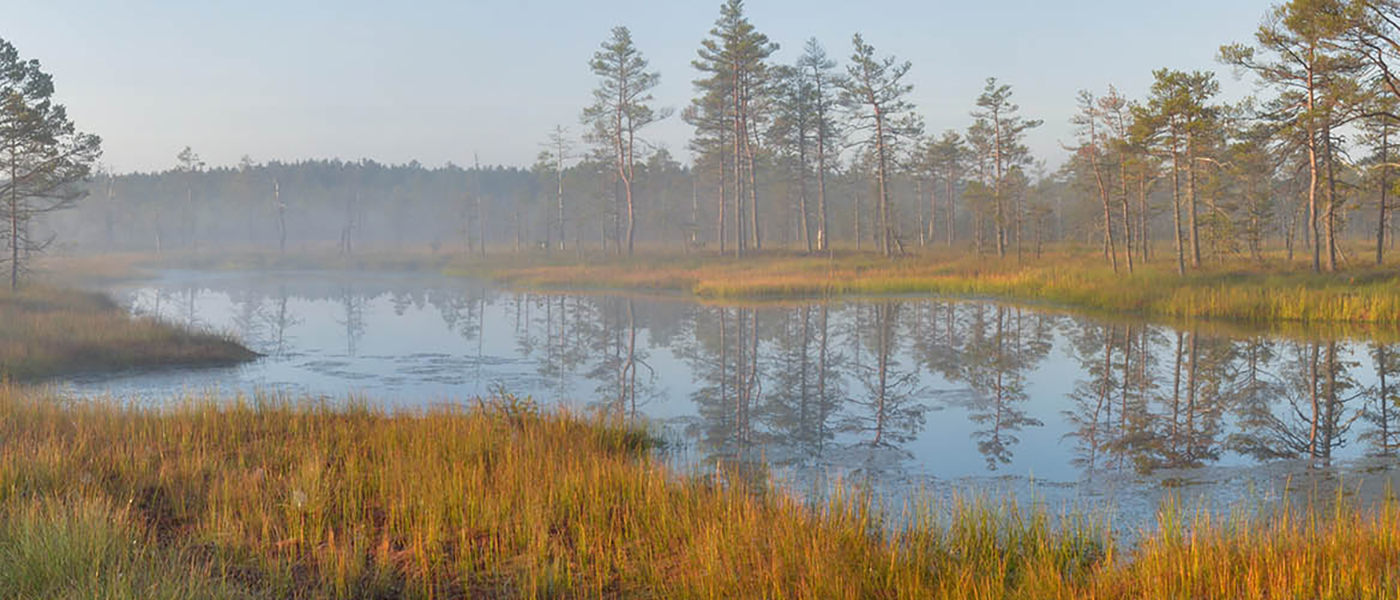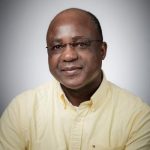Hydrologic Sciences
This research group uses state-of-the-art equipment and techniques to generate new knowledge about the occurrence, distribution, and quality of water in the environment. The role of water as an essential component of the environment and key driver of climate system, and the impact of human activities on the quality and quantity of water are also studied. That research has strong field, laboratory, and modelling components. Together with our graduate and senior undergraduate students we conduct world-class research on Climate Change, Soil water, Ecohydrology, Wetlands, Contaminant Hydrogeology, Arctic and Cold Regions Hydrology, Vadose Zone Hydrology, Hydroclimatology, and Hydrologic Models including physical, statistical and Neural Network Models.
Information Box Group
Altaf Arain
Professor
Associate Member: Civil Engineering
Dr. M. Altaf Arain‘s research program focuses on hydrometeorology, climatology, evapotranspiration, forest and agricultural carbon and water cycles and ecosystem, watershed and global climate models. He has established a multidisciplinary ecosystem restoration and environmental sustainability research program that explores the interactions and feedbacks between biogeochemical and hydrologic cycles in different-age and -species forest ecosystems and agricultural crops. As part of this program, he has established Turkey Point Environmental Observatory, comprising five flux tower stations near Lake Erie in Southern Ontario, which are part of Global Water Futures (GWF), Ameriflux, global Fluxnet and US-Canada Global Centre programs. Using ground based (eddy covariance, soil CO2 efflux, sapflow systems) and airborne (e.g. drone and satellite remote sensing) his group is exploring carbon sequestration capabilities, water use and sensitivity and resilience of plantation or managed forests and crops to future climate change and extreme weather events. His Lab is also involved in the development of the Canadian Land Surface Scheme Including Biogeochemical Cycles (CLASSIC) used in the Canadian Earth System Model (CanESM) for climate predictions and integrated biogeochemical and hydrologic modelling systems (MESH-CLASSIC) for catchment-scale water cycle studies.
Sean Carey
Professor
Dr. Carey directs the Watershed Hydrology Group and his research interests include hydrological, biogeochemical and land surface processes in natural and human impacted environments.
The group Dr. Carey uses field, laboratory and modelling approaches to understand how hydrological processes interact and influence ecosystem, biogeochemical and catchment processes across scales. Dr. Carey has a particular interest in cold environments and has been working in Yukon Territory for over 20 years. In addition, the influence of landscape disturbance on catchment processes has been an area of focus as the group seeks to help both industry and regulators understand and mitigate large scale disturbance in northern regions.
Dr. Carey serves on the Global Water Futures Strategic Management Committee and is the Principal Investigator fo the Mountain Water Futures program.
Paulin Coulibaly
Professor
Jointly in SEES, and Department of Civil Engineering
Dr. Paulin Coulibaly holds a PhD in Civil Engineering from Laval University. He joined McMaster Universty in 2001 from the National Research Institute in Quebec. He holds a joint position in Civil Engineering Department and the School of Earth, Environment & Society. Dr. Coulibaly has been involved in developing hydrologic modelling and forecasting tools for Hydropower Companies, Public and Private Sectors. His research group recently developed MAC-HBV – a hydrologic model for simulating streamflow regime in ungauged basins. MAC-HBV is used by the Ministry Natural Resources for determining environmental flow in Ontario ungauged basins, and is also used around the World. Dr. Coulibaly is internationally known as an expert in Hydroinformatics (Data-Driven Methods developments and applications in Hydrology). His research interest includes: Hydro-climatic modelling; Climate Change and Water Resources Vulnerability; Hydrologic Data Assimilation/Remote Sensing Hydrology.He is Associate Editor of the ASCE Journal of Hydrologic Engineering, and is on the Editorial Board of the Journal of Hydroinformatics.
He is an active member of Professional Engineers Ontario.
Elli Papangelakis
Assistant Professor
Fairley Gadsby Research Chair in Fluvial Geomorphology
Dr. Elli Papangelakis is an Assistant Professor in the School of Earth, Environment & Society at McMaster University. She has a multidisciplinary education background, with a BSc in Physics and Geography (University of Toronto), a MSc in Geography (UBC), and a PhD in Civil and Environmental Engineering (University of Waterloo). Her research focuses on the effects of urbanization and land-use change on the geomorphic processes of rivers through a combination of fieldwork, laboratory, and GIS research methods. Her primary goal is to better understand sediment transport processes, morphologic adjustments, and physical habitat characteristics of urban rivers. She is particularly interested in urban river restoration and management, specifically on assessing the performance of different restoration designs and in the development of novel river management strategies that bring together the most advanced science and technology from different fields. Most of her research focuses is confused in Southern Ontario, which provides an excellent example of heavily-urbanized and managed fluvial environments. She also works with salmon habitat restoration projects in British Columbia.
Examples of exciting new approaches her research group employs:
- Gravel augmentation to rehabilitate urban rivers
- Measuring geomorphic parameters using UAV (drone) based imaging
- GIS-based erosion sensitivity models
- Citizen science for geomorphic monitoring

Elli Papangelakis
Assistant Professor
Fairley Gadsby Research Chair in Fluvial Geomorphology
James Smith
Professor
My primary research interests are in Subsurface Contaminant Hydrology. That includes Contaminant Fate and Transport within the subdisciplines of Hydrogeology (below the water table) and Vadose Zone Hydrology (above the water table). I am particularly interested in the study of multiphase flow and unsaturated flow in porous media, i.e. when more than one fluid is present. My research approach emphasises highly controlled laboratory based experiments to investigate primary mechanisms and processes controlling fluid flow and contaminant transport. In addition, numerical modelling is used to analyse laboratory and field data, design further experiments, and investigate the potential implications of the research results.
This research improves and extends our fundamental understanding of Subsurface Contaminant Hydrology and the technologies used in Groundwater and Soil Contamination Investigations, Monitoring, Simulation, and Remediation.
James Michael Waddington
Professor
Canada Research Chair (Tier 1) in Ecohydrology
Dr. James Michael Waddington’s research in ecohydrology studies the ecological and hydrological processes that underlie the structure and function of wetlands and watershed ecosystems and the distribution, movement, and quality of water.
With his research foundation firmly in hydrology and by adopting a watershed ecosystems framework, he uses innovative field experimental manipulations and ecohydrological modelling to understand watershed interactions of water, vegetation, soil and greenhouse gas exchange. His research examines the effects of wildfire, drought and resource extraction on watershed ecohydrology with a focus on ecosystems, such as peatlands, that may be sensitive to changes in hydrology. He is developing new wetland restoration approaches and designs for resource managers, fire managers and industry partners to enhance watershed resilience to climate change.
Altaf Arain
Professor
Associate Member: Civil Engineering
Dr. M. Altaf Arain‘s research program focuses on hydrometeorology, climatology, evapotranspiration, forest and agricultural carbon and water cycles and ecosystem, watershed and global climate models. He has established a multidisciplinary ecosystem restoration and environmental sustainability research program that explores the interactions and feedbacks between biogeochemical and hydrologic cycles in different-age and -species forest ecosystems and agricultural crops. As part of this program, he has established Turkey Point Environmental Observatory, comprising five flux tower stations near Lake Erie in Southern Ontario, which are part of Global Water Futures (GWF), Ameriflux, global Fluxnet and US-Canada Global Centre programs. Using ground based (eddy covariance, soil CO2 efflux, sapflow systems) and airborne (e.g. drone and satellite remote sensing) his group is exploring carbon sequestration capabilities, water use and sensitivity and resilience of plantation or managed forests and crops to future climate change and extreme weather events. His Lab is also involved in the development of the Canadian Land Surface Scheme Including Biogeochemical Cycles (CLASSIC) used in the Canadian Earth System Model (CanESM) for climate predictions and integrated biogeochemical and hydrologic modelling systems (MESH-CLASSIC) for catchment-scale water cycle studies.
Altaf Arain
Professor
Associate Member: Civil Engineering
Dr. M. Altaf Arain‘s research program focuses on hydrometeorology, climatology, evapotranspiration, forest and agricultural carbon and water cycles and ecosystem, watershed and global climate models. He has established a multidisciplinary ecosystem restoration and environmental sustainability research program that explores the interactions and feedbacks between biogeochemical and hydrologic cycles in different-age and -species forest ecosystems and agricultural crops. As part of this program, he has established Turkey Point Environmental Observatory, comprising five flux tower stations near Lake Erie in Southern Ontario, which are part of Global Water Futures (GWF), Ameriflux, global Fluxnet and US-Canada Global Centre programs. Using ground based (eddy covariance, soil CO2 efflux, sapflow systems) and airborne (e.g. drone and satellite remote sensing) his group is exploring carbon sequestration capabilities, water use and sensitivity and resilience of plantation or managed forests and crops to future climate change and extreme weather events. His Lab is also involved in the development of the Canadian Land Surface Scheme Including Biogeochemical Cycles (CLASSIC) used in the Canadian Earth System Model (CanESM) for climate predictions and integrated biogeochemical and hydrologic modelling systems (MESH-CLASSIC) for catchment-scale water cycle studies.
Sean Carey
Professor
Dr. Carey directs the Watershed Hydrology Group and his research interests include hydrological, biogeochemical and land surface processes in natural and human impacted environments.
The group Dr. Carey uses field, laboratory and modelling approaches to understand how hydrological processes interact and influence ecosystem, biogeochemical and catchment processes across scales. Dr. Carey has a particular interest in cold environments and has been working in Yukon Territory for over 20 years. In addition, the influence of landscape disturbance on catchment processes has been an area of focus as the group seeks to help both industry and regulators understand and mitigate large scale disturbance in northern regions.
Dr. Carey serves on the Global Water Futures Strategic Management Committee and is the Principal Investigator fo the Mountain Water Futures program.
Sean Carey
Professor
Dr. Carey directs the Watershed Hydrology Group and his research interests include hydrological, biogeochemical and land surface processes in natural and human impacted environments.
The group Dr. Carey uses field, laboratory and modelling approaches to understand how hydrological processes interact and influence ecosystem, biogeochemical and catchment processes across scales. Dr. Carey has a particular interest in cold environments and has been working in Yukon Territory for over 20 years. In addition, the influence of landscape disturbance on catchment processes has been an area of focus as the group seeks to help both industry and regulators understand and mitigate large scale disturbance in northern regions.
Dr. Carey serves on the Global Water Futures Strategic Management Committee and is the Principal Investigator fo the Mountain Water Futures program.
Paulin Coulibaly
Professor
Jointly in SEES, and Department of Civil Engineering
Dr. Paulin Coulibaly holds a PhD in Civil Engineering from Laval University. He joined McMaster Universty in 2001 from the National Research Institute in Quebec. He holds a joint position in Civil Engineering Department and the School of Earth, Environment & Society. Dr. Coulibaly has been involved in developing hydrologic modelling and forecasting tools for Hydropower Companies, Public and Private Sectors. His research group recently developed MAC-HBV – a hydrologic model for simulating streamflow regime in ungauged basins. MAC-HBV is used by the Ministry Natural Resources for determining environmental flow in Ontario ungauged basins, and is also used around the World. Dr. Coulibaly is internationally known as an expert in Hydroinformatics (Data-Driven Methods developments and applications in Hydrology). His research interest includes: Hydro-climatic modelling; Climate Change and Water Resources Vulnerability; Hydrologic Data Assimilation/Remote Sensing Hydrology.He is Associate Editor of the ASCE Journal of Hydrologic Engineering, and is on the Editorial Board of the Journal of Hydroinformatics.
He is an active member of Professional Engineers Ontario.
Paulin Coulibaly
Professor
Jointly in SEES, and Department of Civil Engineering
Dr. Paulin Coulibaly holds a PhD in Civil Engineering from Laval University. He joined McMaster Universty in 2001 from the National Research Institute in Quebec. He holds a joint position in Civil Engineering Department and the School of Earth, Environment & Society. Dr. Coulibaly has been involved in developing hydrologic modelling and forecasting tools for Hydropower Companies, Public and Private Sectors. His research group recently developed MAC-HBV – a hydrologic model for simulating streamflow regime in ungauged basins. MAC-HBV is used by the Ministry Natural Resources for determining environmental flow in Ontario ungauged basins, and is also used around the World. Dr. Coulibaly is internationally known as an expert in Hydroinformatics (Data-Driven Methods developments and applications in Hydrology). His research interest includes: Hydro-climatic modelling; Climate Change and Water Resources Vulnerability; Hydrologic Data Assimilation/Remote Sensing Hydrology.He is Associate Editor of the ASCE Journal of Hydrologic Engineering, and is on the Editorial Board of the Journal of Hydroinformatics.
He is an active member of Professional Engineers Ontario.
Elli Papangelakis
Assistant Professor
Fairley Gadsby Research Chair in Fluvial Geomorphology
Dr. Elli Papangelakis is an Assistant Professor in the School of Earth, Environment & Society at McMaster University. She has a multidisciplinary education background, with a BSc in Physics and Geography (University of Toronto), a MSc in Geography (UBC), and a PhD in Civil and Environmental Engineering (University of Waterloo). Her research focuses on the effects of urbanization and land-use change on the geomorphic processes of rivers through a combination of fieldwork, laboratory, and GIS research methods. Her primary goal is to better understand sediment transport processes, morphologic adjustments, and physical habitat characteristics of urban rivers. She is particularly interested in urban river restoration and management, specifically on assessing the performance of different restoration designs and in the development of novel river management strategies that bring together the most advanced science and technology from different fields. Most of her research focuses is confused in Southern Ontario, which provides an excellent example of heavily-urbanized and managed fluvial environments. She also works with salmon habitat restoration projects in British Columbia.
Examples of exciting new approaches her research group employs:
- Gravel augmentation to rehabilitate urban rivers
- Measuring geomorphic parameters using UAV (drone) based imaging
- GIS-based erosion sensitivity models
- Citizen science for geomorphic monitoring
Elli Papangelakis
Assistant Professor
Fairley Gadsby Research Chair in Fluvial Geomorphology
Dr. Elli Papangelakis is an Assistant Professor in the School of Earth, Environment & Society at McMaster University. She has a multidisciplinary education background, with a BSc in Physics and Geography (University of Toronto), a MSc in Geography (UBC), and a PhD in Civil and Environmental Engineering (University of Waterloo). Her research focuses on the effects of urbanization and land-use change on the geomorphic processes of rivers through a combination of fieldwork, laboratory, and GIS research methods. Her primary goal is to better understand sediment transport processes, morphologic adjustments, and physical habitat characteristics of urban rivers. She is particularly interested in urban river restoration and management, specifically on assessing the performance of different restoration designs and in the development of novel river management strategies that bring together the most advanced science and technology from different fields. Most of her research focuses is confused in Southern Ontario, which provides an excellent example of heavily-urbanized and managed fluvial environments. She also works with salmon habitat restoration projects in British Columbia.
Examples of exciting new approaches her research group employs:
- Gravel augmentation to rehabilitate urban rivers
- Measuring geomorphic parameters using UAV (drone) based imaging
- GIS-based erosion sensitivity models
- Citizen science for geomorphic monitoring
James Smith
Professor
My primary research interests are in Subsurface Contaminant Hydrology. That includes Contaminant Fate and Transport within the subdisciplines of Hydrogeology (below the water table) and Vadose Zone Hydrology (above the water table). I am particularly interested in the study of multiphase flow and unsaturated flow in porous media, i.e. when more than one fluid is present. My research approach emphasises highly controlled laboratory based experiments to investigate primary mechanisms and processes controlling fluid flow and contaminant transport. In addition, numerical modelling is used to analyse laboratory and field data, design further experiments, and investigate the potential implications of the research results.
This research improves and extends our fundamental understanding of Subsurface Contaminant Hydrology and the technologies used in Groundwater and Soil Contamination Investigations, Monitoring, Simulation, and Remediation.
James Smith
Professor
My primary research interests are in Subsurface Contaminant Hydrology. That includes Contaminant Fate and Transport within the subdisciplines of Hydrogeology (below the water table) and Vadose Zone Hydrology (above the water table). I am particularly interested in the study of multiphase flow and unsaturated flow in porous media, i.e. when more than one fluid is present. My research approach emphasises highly controlled laboratory based experiments to investigate primary mechanisms and processes controlling fluid flow and contaminant transport. In addition, numerical modelling is used to analyse laboratory and field data, design further experiments, and investigate the potential implications of the research results.
This research improves and extends our fundamental understanding of Subsurface Contaminant Hydrology and the technologies used in Groundwater and Soil Contamination Investigations, Monitoring, Simulation, and Remediation.
James Michael Waddington
Professor
Canada Research Chair (Tier 1) in Ecohydrology
Dr. James Michael Waddington’s research in ecohydrology studies the ecological and hydrological processes that underlie the structure and function of wetlands and watershed ecosystems and the distribution, movement, and quality of water.
With his research foundation firmly in hydrology and by adopting a watershed ecosystems framework, he uses innovative field experimental manipulations and ecohydrological modelling to understand watershed interactions of water, vegetation, soil and greenhouse gas exchange. His research examines the effects of wildfire, drought and resource extraction on watershed ecohydrology with a focus on ecosystems, such as peatlands, that may be sensitive to changes in hydrology. He is developing new wetland restoration approaches and designs for resource managers, fire managers and industry partners to enhance watershed resilience to climate change.
James Michael Waddington
Professor
Canada Research Chair (Tier 1) in Ecohydrology
Dr. James Michael Waddington’s research in ecohydrology studies the ecological and hydrological processes that underlie the structure and function of wetlands and watershed ecosystems and the distribution, movement, and quality of water.
With his research foundation firmly in hydrology and by adopting a watershed ecosystems framework, he uses innovative field experimental manipulations and ecohydrological modelling to understand watershed interactions of water, vegetation, soil and greenhouse gas exchange. His research examines the effects of wildfire, drought and resource extraction on watershed ecohydrology with a focus on ecosystems, such as peatlands, that may be sensitive to changes in hydrology. He is developing new wetland restoration approaches and designs for resource managers, fire managers and industry partners to enhance watershed resilience to climate change.






